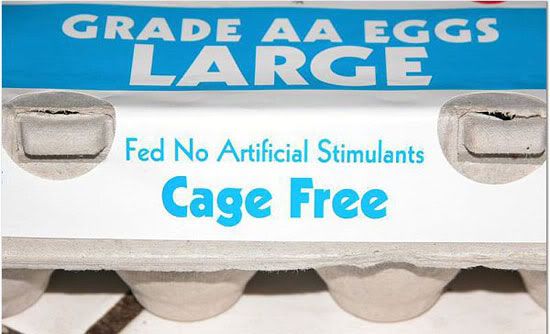This is the eighth part of a series of posts analyzing California’s propositions:
-
Vote Yes on Proposition 30 – Jerry Brown’s Budget Plan
-
Vote No on Proposition 31 – Changes to State Budgeting
-
Vote No on Proposition 32 – Union-busting
-
VOTE NO ON PROPOSITION 33 – CAR INSURANCE
-
Vote Yes on Proposition 34 – Death Penalty
-
Vote No on Proposition 35 – Human Trafficking
-
Vote No on Proposition 36: Three Strikes Law
-
Vote No on Proposition 37: Genetically Engineered Food
-
Vote No on Proposition 38: Molly Munger’s Tax Initiative
A Badly Written Proposition…
On its most basic level, Proposition 37 has a fairly simple concept. It requires labels on genetically engineered food and prevents genetically engineered food or processed food from being advertised as “natural.”
Unfortunately, in the real world things are rarely that simple.
More below.
The Sacramento Bee gives a number of examples. Should we include pet food? What about alcohol? What about an animal which ate genetically engineered food but isn’t genetically modified itself? Olive oil is processed; you press olives to make olive oil. Does that mean that olive oil can’t be labeled as “natural?”
Proposition 37′s backers did not attempt to pass the law through the legislature before writing their proposition. In the legislature these complex issues might have been dealt with adequately; after all, that is the legislature’s job. Instead, Proposition 37 attempts to address the complexity of labeling genetically engineered food by adding a number of exemptions.
These exemptions make matters worse. Pet food, under Proposition 37, could be labeled as genetically engineered. Alcohol would not. But fruit juice could. Cow’s milk would probably not be labeled as genetically engineered, even if the cow ate genetically engineered grain, under Proposition 37′s exemptions. But soy milk would probably be labeled as genetically engineered, since almost all soy in the United States is genetically engineered. Genetically engineered broccoli in a restaurant would not need to be labeled, but in a grocery store it would need to be labeled.
And yes, it’s quite possible that olive oil could not be labeled “natural” under Proposition 37. After all, olive oil is obviously processed.
On a Subject For Which There’s A Better Solution
There’s a better way to do things. Producers can, on their own initiative, label their foods as non-genetically engineered.
The same purpose that Proposition 37 attempts to accomplish would then be served. Consumers worried about eating genetically engineered food could decide to only buy food labeled as non-genetically engineered. No need for all of Proposition 37′s messy exemptions. As the Los Angeles Times writes:
…the marketplace already provides ways to inform consumers about their food. Just as some meats are labeled antibiotic-free or hormone-free, and some eggs are labeled cage-free, food producers are welcome to label their foods as GE-free.
That sounds a lot easier and simpler than Proposition 37′s craziness.
–inoljt

